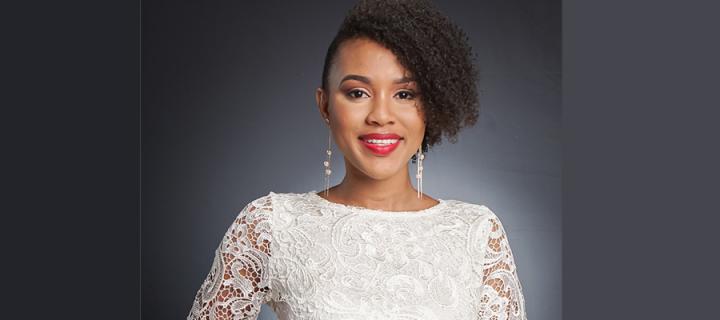Zia Barnard
In 2020 Zia Barnard joined over 600 Edinburgh alumni who hail from the Caribbean. The Saint Lucian resident tell us about her time studying Biotechnology, the challenges of graduating during a global pandemic, and her hopes to inspire future academics from her home island.
| Name |
Zia Barnard |
| Degree | Biotechnology |
| Year of graduation | 2020 |

At the moment
I currently live in my home country, Saint Lucia, where I am employed as a Medical Technologist in a clinical laboratory. My job is exciting as I get to apply the knowledge and skills, which I amassed from university to support patient diagnosis and care.
Your time at the University
From a tropical island to a bitterly cold temperate country? That was a huge wardrobe adjustment!
My fascination with genetic engineering, as well as the relevance of this research, propelled me to pursue a MSc in Biotechnology at the University of Edinburgh. Due to its superior ratings, cutting edge learning environment, fascinating postgraduate programme and impressive staff, the University greatly appealed to me. Besides, Scotland’s natural beauty, enchanting history and unique architecture was enough to sway me. But from a tropical island to a bitterly cold temperate country? That was a huge wardrobe adjustment!
Though fraught with many obstacles (numerous lectures, gruelling assignments, unnerving exams and endless sleepless nights), I am happy to have been fostered into an academic environment which promoted critical thinking, multidisciplinary collaboration, networking and research. For my MSc dissertation, I interned with a renowned clinical diagnostics’ company to develop a new assay.
The University of Edinburgh was more than just academic excellence. My fondest memory remains the time spent at Firbush (the University’s outdoor centre), where I kayaked in the loch and hiked to discover a cave and a bejewelled waterfall. I made life-long friends from various parts of the world, with whom I was able to explore the mystical histories of over seven castles dispersed throughout Edinburgh. Though the country-wide lockdown brought an abrupt stop to my outdoorsy adventures, I was still able to enjoy the pink blooms of the Japanese Cherry Blossoms at the end of spring - within a socially distanced limit that is.
Your experiences since leaving the University
Normally, post-graduation life is exciting due to the prospect of new opportunities, however the coronavirus pandemic created an environment of mass uncertainty flooded with the hardships of rising unemployment and economic recession. And so, after returning to my tropical home island, I was constantly adapting my priorities to cater to the changing demands of the pandemic. Countless free time coupled with numerous rejection letters allowed me to pursue new academic courses (like Python and Contact Tracing) and hobbies (like vegetable gardening). Apart from this, I voluntarily participated in several national radio and TV show panels discussing latest research about Covid-19, with the hopes of spreading knowledge while encouraging others to do the same.
Thankfully within six months of returning home and after weeks of virtual interviews and negotiations, I was able to secure my present job. Though I am employed in a role that I always dreamed about, I still have a civic responsibility to continue to develop my country. In the future, I hope to inspire young people to pursue careers in science through mentoring and the development of a scholarship fund that can contribute to their studies. It is my hope that the next generation of academics can be inspired to make a significant difference in the world.
Life during Covid-19
While the pandemic created countless challenges, it also created a unique job opportunity for me. My main role as a medical technologist is to analyse patients’ samples and to perform diagnostic tests (for example, the Polymerase Chain Reaction/PCR test ) to determine whether someone has the novel coronavirus. The job is fast-paced and exciting because every new day brings its own challenges. My satisfaction is derived from providing critical information to patients within a timely manner to support their care and treatment. Without my education and practical training at university, I would have never been able to assume this post.
Alumni Wisdom
I implore you to reflect on the words of Nelson Mandela: “Education is the most powerful tool that you can use to change the world”. I am confident that the strong academic foundation that you will amass at the University of Edinburgh will equip you with all the necessary tools to tackle and solve the complex and uncountable problems of humanity. Additionally, the life skills, networks, and experiences which you will gain will prepare you for all the challenges that will inevitably occur on your journey towards success.

